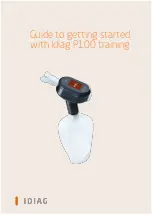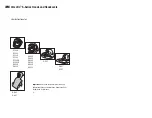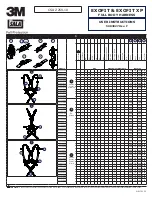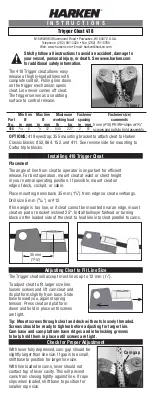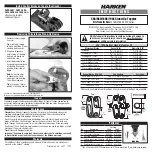
NESS L300 User Guide
41
Problem
Solution
No error indications
appear, but there is no
movement of the ankle.
1. Turn OFF the system.
2. Take the Orthosis off your calf.
3. Put the Orthosis on your calf while
making sure that the Orthosis is
properly positioned on your calf, as
described in "Putting on the orthosis"
4. Turn ON the Control Unit again, and
press the Trigger Button.
If there is still no ankle movement contact
your NESS L300 distributor.
I feel stimulation from the
orthosis, but my foot does
not respond in a
satisfactory way.
1. Make sure that the Orthosis
is snug against your calf and
that the electrodes are in
close contact with the skin.
2. Make sure you are in the
desired mode.
If the ankle movement is still unsatisfactory,
turn OFF the system.
3. Remove the Orthosis, then
replace it on your calf,
making certain that the
Orthosis is positioned
correctly, as described in
"Putting on the orthosis"
If the configuration is still
unsatisfactory, contact your NESS
L300 distributor.
System malfunction
indication appears.
Cease use of system and contact your
NESS L300 distributor.

























